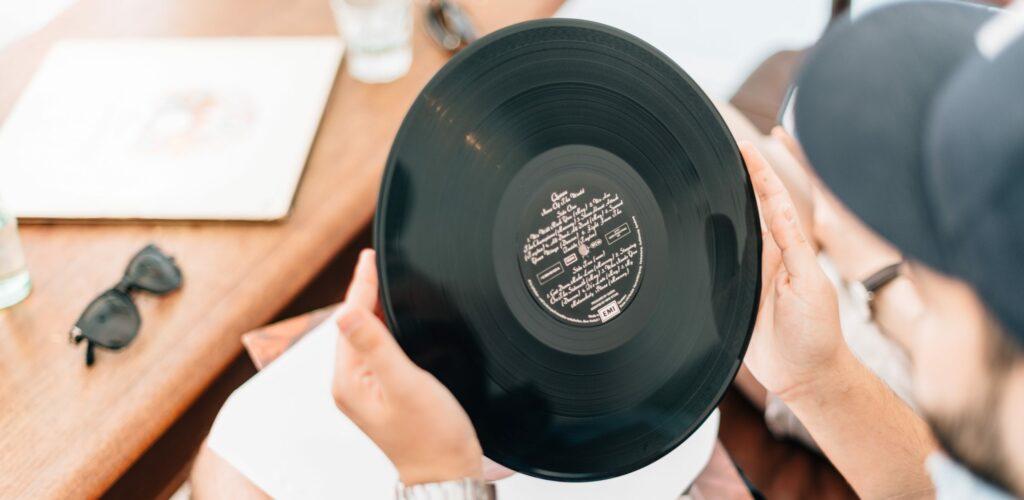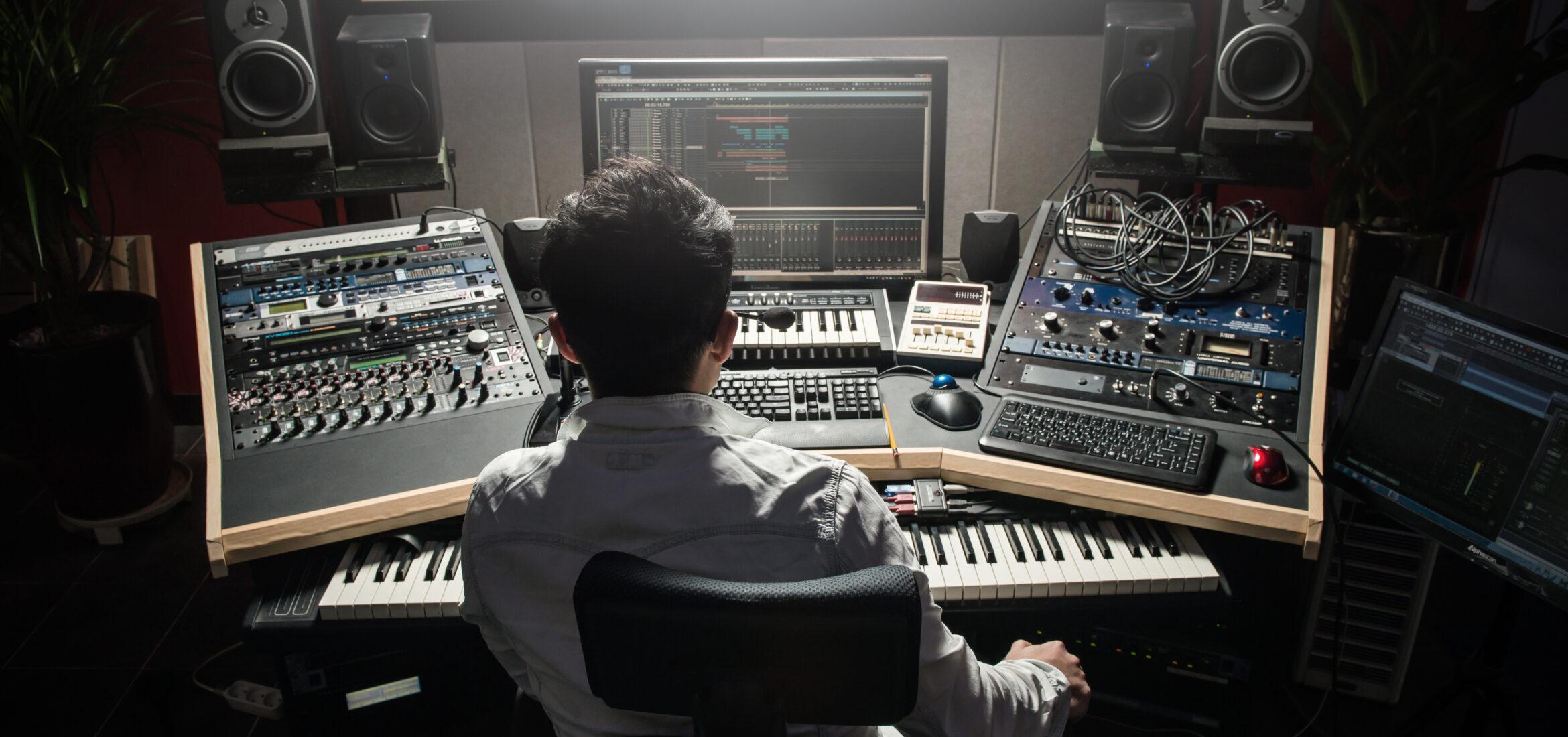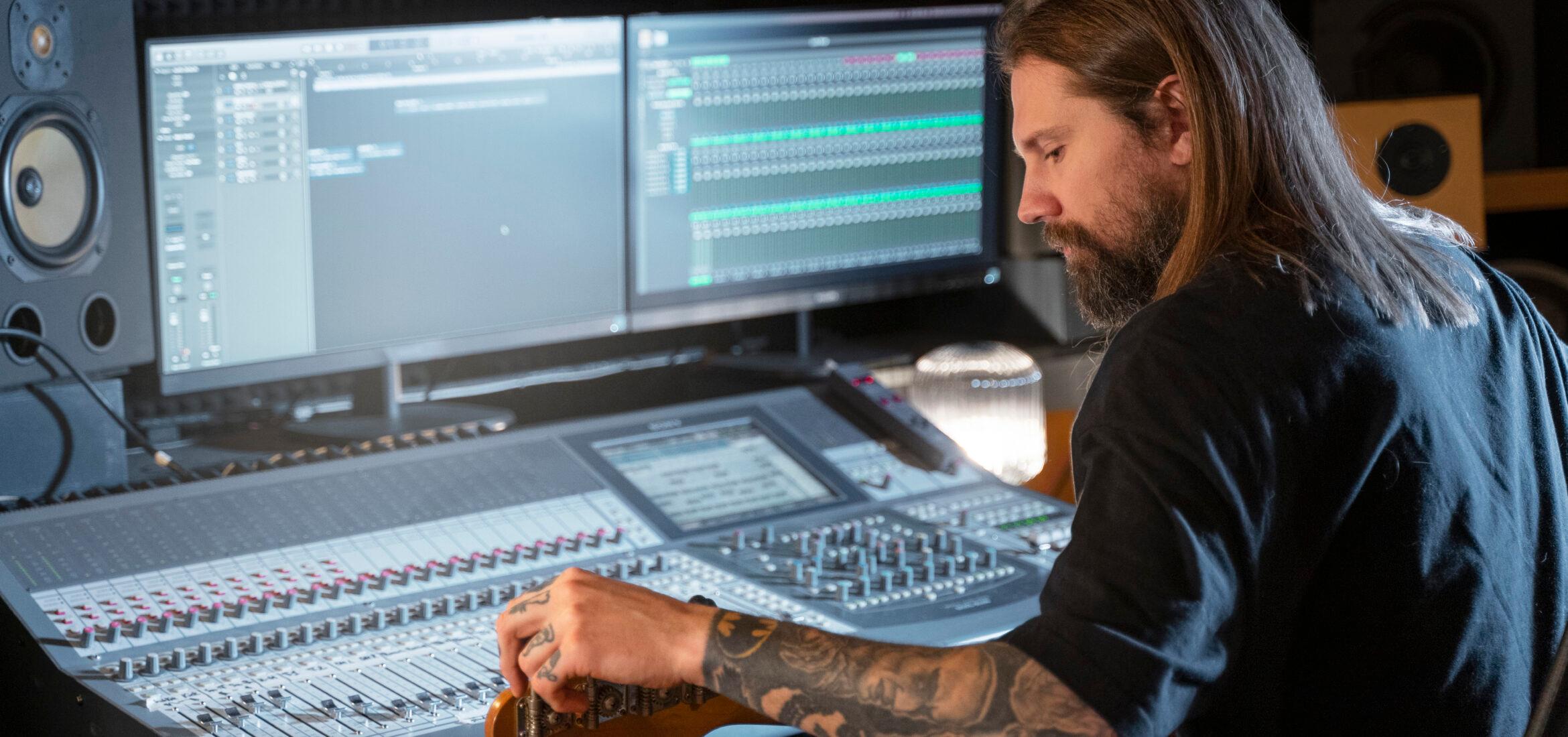You’ve probably heard the word “mastering” thrown around quite a bit in music circles. Despite being used frequently, there are still some misconceptions about what it is and why it matters. Part of this misunderstanding is historical. In the early days of recording, audio mastering primarily referred to the process of transferring original recording data to an analog storage device. This physical device would be the source used to make copies of the data for distribution.
Of course, today, with more resources and digital technology, this old definition has expanded. Most producers master recordings digitally now, meaning there is no longer a need for analog storage devices. While mastering still refers to the transfer and storage processes, the term now encompasses even more. Here, we will break down every aspect of modern mastering and detail why it’s crucial to achieve great-sounding music ready to compete in the market.
Table of Contents
- What is Mastering in Music Production?
- History Of Mastering in Music
- How Does Audio Mastering Improve Sound Quality?
- Why is Mastering Essential For Music Distribution?
- How Is The Music Mastering Process?
- What Is The Difference Between Mixing And Mastering Music?
- Why Does Mastering Matter?
- Conclusion
What is Mastering in Music Production?
So what is mastering today? Audio mastering occurs post-mixing once each track works together correctly, sitting at ideal frequencies. It’s the final step of the entire production process. It deals with the equalization of the song as a whole, to emphasize or dial back specific frequencies of the overall mix. Overall loudness also increases with multiband compression and peak limiting, and when reducing bit rate to the standard 16-bit, audio dithering supplements the track.
In other words, mastering is a zoomed-out, final look at the song to balance and improve the overall sound. To ensure consistency throughout an album, the producer must master each song the same way. This collective process is why songs on your favorite record sound uniform in frequency, quality, and volume.

History Of Mastering in Music
The origins of mastering can be traced back to the early days of recorded music in the late 19th and early 20th centuries. Initially, mastering involved simple processes such as cutting grooves into wax cylinders or discs. Engineers would tweak levels during the recording to ensure that the sound quality was as high as possible, laying the groundwork for what would later become a specialized field.
The Vinyl Era
As technology advanced, the introduction of vinyl records in the mid-20th century revolutionized the mastering process. Engineers began using more sophisticated equipment, such as equalizers and compressors, to enhance sound quality. The mastering process became more defined, focusing not only on volume but also on the overall sound character of recordings. Notable mastering engineers like Ray Staff and Bernie Grundman emerged during this time, marking the importance of mastering as a distinct art form.
The Digital Revolution
The transition to digital recordings in the late 20th century brought significant changes to the mastering process. With the advent of digital audio workstations (DAWs), mastering became more accessible to independent artists and producers. This democratization of technology allowed for greater creativity and experimentation, but it also led to challenges such as the “loudness war,” where tracks were pushed to extreme loudness at the expense of dynamic range.
Modern Mastering Techniques
Today, mastering employs a blend of traditional techniques and cutting-edge digital tools. The role of the mastering engineer has expanded to include not only finalizing tracks for various formats—streaming, vinyl, CD—but also ensuring that the music sounds cohesive across different playback systems. The integration of advanced software alongside analog gear allows for more precise control over the final sound.
How Does Audio Mastering Improve Sound Quality?
We all know what sounds good to our ears. In a way, the mastering process is about optimizing how good the song sounds to us. It’s vital to keep in mind, however, that people listen to music in many ways. Some listen through laptop speakers, others need high-fidelity headphones, while more jam out through their car’s sound system. All of these outputs differ in quality, tone, and circumstance. Still, regardless of where the music is listened to, the tracks need to sound as good as possible.
Achieving this takes some effort and experimentation. It’s essential not to spend hours mastering a song, especially through a single sound system. For instance, your ears and brain get tired and desensitized to the noise, making it more challenging to identify the required changes. It’s crucial to take a break between sessions. Listening through different speakers is also important. It will give you an idea of what the product will sound like in different environments. Home studio monitors are great, but the audience will listen to the music elsewhere, too. It also doesn’t hurt to get an outside ear or two to get feedback on the overall sound. It’s like having someone proofread your writing it’s easy to miss your typos.
How Does Loudness Affect Quality?
Loudness is another significant part of mastering. If you’re wondering why the songs you hear on the radio or the web all sit at the same loudness level, it’s because the producers master the tracks to accommodate a similar loudness. Radio stations and streaming services also have their own audio mastering services to ensure this quality. Understanding the LUFS metering system is an excellent place to begin learning how loudness plays a role in overall brightness, punch, and clarity.
To achieve the best sound quality in a master, it’s also essential to know how to prepare your track for mastering. Be sure to leave enough headroom to ensure proper loudness and sound quality. Headroom refers to how much “room” there is in decibels (dB) before peaking. By allowing yourself this space in the mix, you’ll essentially have more options when mastering.
Why is Mastering Essential For Music Distribution?
Because mastering is the final process in the production phase, it’s the last thing that happens before the music is released publicly. Previously, artists solely distributed music through specific physical channels, but today, anyone can distribute their music digitally. It’s now easier than ever to get your music on streaming services like Soundcloud, Spotify, or Bandcamp and even make money from it. But if you’re putting music out there, you want it to sound as good as possible. Whether you like it or not, your music competes with hundreds of thousands of other artists and songs. This competition is why mastering is so important. It’s that final layer of polish on the song that will bring it to the forefront.

Now, there’s a bit more to mastering for distribution when dealing with traditional physical media. The medium through which the artists sell the music is also important when mastering. For instance, mastering for a CD-ROM will differ slightly than for a vinyl release. This difference is because these mediums have different specifications, sound qualities, and capacities. CD mastering, for instance, needs “Start Track” and “End Track” indexes to separate each song on the album. Vinyl producers master tracks analog, which requires additional changes to the low bass frequencies to compensate for the vinyl’s capacities.
How Is The Music Mastering Process?
Audio Mastering is a multi-step process that takes a mix from its finished form to a polished, professional final product ready for distribution. Each step in the process plays a specific role, working together to enhance the track’s clarity, balance, and impact. From shaping the tonal balance with EQ to setting the appropriate dynamics and preparing the final format, mastering ensures the music is optimized for all playback systems and delivers a cohesive listening experience. Here’s a breakdown of the key stages involved in the mastering process.
Equalization, Compression, and Limiting
Equalization in Mastering is essential. It adjusts the balance of frequency ranges to enhance clarity and ensure each element is audible. Proper EQ significantly affects how the track translates across different playback systems.
Audio Compression is also vital, smoothing out the dynamic range, making quiet parts audible, and preventing peaks. This creates a cohesive sound that maintains listener engagement and impacts the emotion and energy of the final product.
Audio Limiting is a critical technique in audio mastering that ensures the final track maintains a consistent and polished sound. This process involves setting a threshold that prevents audio signals from exceeding a specified level, effectively controlling the peaks that can cause distortion or clipping.
Transitions And Spacing Between Tracks
For albums, spacing each song and introducing transitions is crucial. This affects the listening flow and contributes to the album’s narrative. Some songs may start immediately after the previous one, while others may fade out for moments of reflection.
Maintaining Consistency Across Tracks
Producers view the album as a whole and optimize its audio quality, loudness, and distribution. Maintaining consistency across tracks is vital, ensuring similar volume levels, tonal balance, and overall sonic character. This creates a unified experience for listeners, making the album feel cohesive.
Final Checks And Formats
Following the initial mastering phase, producers carry out final evaluations to verify the sound quality across different playback systems. They finalize the master in formats appropriate for distribution, such as digital streaming, vinyl, or CD. In certain situations, they might need to implement dithering, EQ tweaks, and other adjustments to tailor the master for a specific medium. Similarly, different mastering styles can require unique settings to adapt to the music and audience.
What Is The Difference Between Mixing And Mastering Music?
Audiences often conflate mastering and mixing terms. While each process has similar aspects, they are quite different. Mixing refers to the process by which producers individually manipulate tracks, such as EQ, gain, effects, and more. No matter how many tracks make up a recording, each one needs to stand out while also not clashing with or overriding others. This process can be a difficult balance to strike, but it’s why mixing is so important. So mixing deals with the specific components while mastering encompasses the whole process.
Why Does Mastering Matter?
But why is mastering your music so important? Today, just about anyone can make music. DAWs have advanced, and the Internet is so riddled with tutorials that bedroom producers are springing up everywhere. This shift is great because it allows for more creativity, collaboration, and innovation. However, this doesn’t mean every song will be equal in the end. Audio mastering plays a significant role in this.

Songs that make it to the top 40 are handled and perfected by a team of professionals who know the ins and outs of audio. Of course, mastering doesn’t need to be done at this level. Still, without proper audio mastering, your music cannot compete with everything else out there, even at lower production levels.
Beyond mere competition, it’s all about achieving the best-sounding song possible. Even if you’re not concerned about selling your music or becoming well-known, you most likely still want your tracks to sound great. You can work for days and weeks writing and recording a song only to have it sound underwhelming in the end. Mastering plays a massive role in elevating that song to the next level of quality.
Conclusion
Audio mastering is the final stage of the audio production process wherein recordings are optimized for consumption, increasing the overall sound quality and loudness via equalization, multiband compression, peak limiting, dithering, and other processes. On the other hand, the answer can be as long as this article. Mastering music used to mean one thing, and now it means that and so much more.
In brief, if you want to take your recordings to the next level, you should get them mastered. Before this process, it’s good to know how to get your mix ready to be mastered. A mix that’s already well put together makes the music mastering process that much easier, faster, and better in the end. So the next time you hear someone mention audio mastering in conversation, you’ll know the ins and outs of the process and why it’s so crucial for every song.
About the Author

Ethan Keeley
Writer, Voice Talent, Musician, and Audio EditorEthan Keeley is a musician, voiceover talent, and writer from Rochester, New York. When he's not on tour with his band Unwill he's working on new songs and stories.
Comments
I think I like this service, when I am ready I’m going to use it to master my songs
Danke
Thanks for the update.
Magnifico y bien explicado.
Excelente matéria, de fácil compreenção… Parabéns e obrigado por sanar algumas dúvidas! MasteringBox estamos juntos… Abraço a odos da equipe!
Nice
thank you very much for sharing
É que eu to sem grano pro pc mano
Excellent well written article. Thank you for sharing.
Leave a comment
Log in to comment


